Smart Protein Report
Germany is reinventing its diet
Advertisement
ProVeg published the latest Smart Protein Report for Germany today. The report shows that a plant-based diet with less meat is becoming increasingly popular. "Meat reduction is the new normal," explains Dirk Liebenberg, Senior Project Manager for Food Industry & Retail at ProVeg, adding: "Nowhere in Europe is this as clear as in Germany."
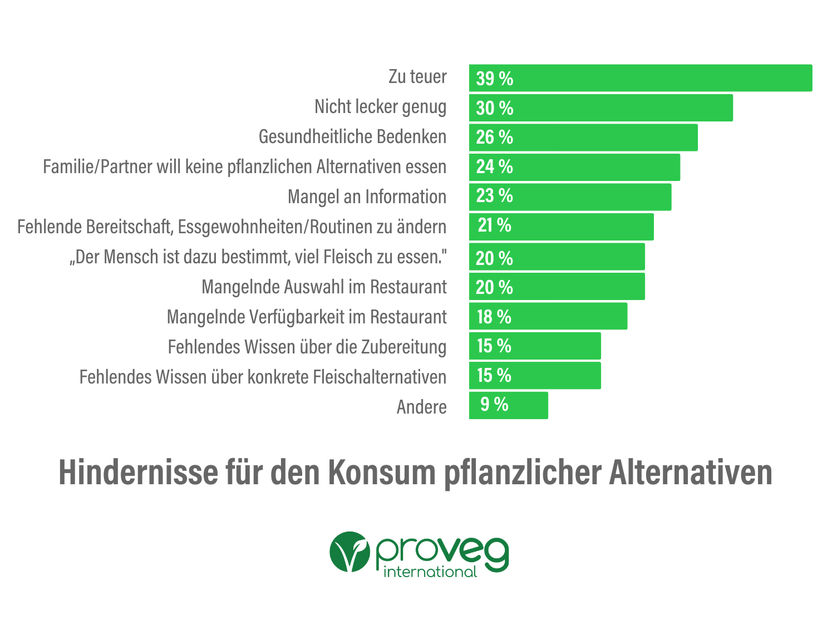
ProVeg
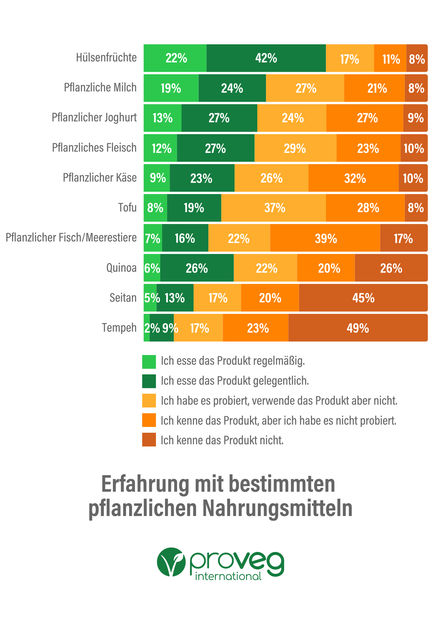
ProVeg
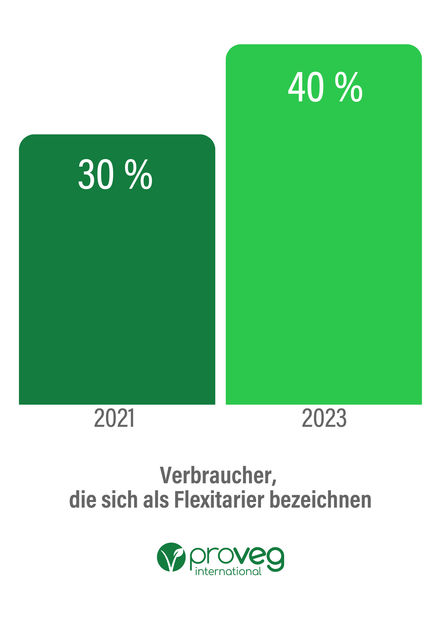
ProVeg
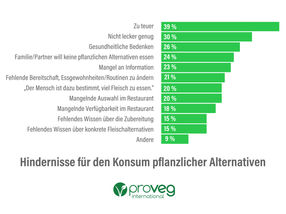
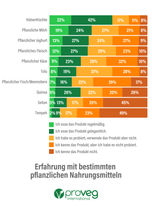
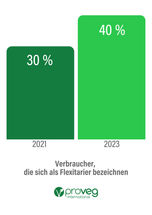
The Germany report is based on the Europe-wide study "Evolving appetites: an in-depth look at European attitudes towards plant-based eating", funded by the EU's Smart Protein project. For this study, ProVeg, together with the University of Copenhagen and the University of Ghent, comprehensively surveyed 7,500 people in ten countries about their eating habits. In addition to Germany, Denmark, France, Italy, the Netherlands, Austria, Poland, Romania, Spain and the United Kingdom were included.
Compared to the previous study "What consumers want" from 2021, the current figures show that the preferences and behavior of consumers in the EU and Germany have changed in a promising way: "Germany is shedding the old clichés of the land of sausages and roasts and reinventing its diet," says Liebenberg happily.
6 out of 10 people are reducing their meat consumption, mainly for health reasons
The proportion of the population actively reducing their own meat consumption has risen from 51% to 59% since 2021. Three reasons for this are more pronounced than average in Germany: around 50% of respondents said that health considerations were the decisive factor. Around 40 percent named animal welfare as a decisive motive. 30 percent referred to the environment and climate.
4 out of 10 people already see themselves as flexitarians
People who are committed to a flexitarian diet explicitly identify with the plant-based dietary change. The proportion of flexitarians has risen from 30 percent to 40 percent since 2021. This is higher than in any other country surveyed.
Pulses and plant-based milk are trumps
Instead of animal-based foods, 40% of people in Germany prefer legumes and 34% prefer legume-based products. Plant-based milk is well received by 36 percent.
The products should fulfill three requirements: They should be tasty, emphasized 55 percent of respondents. They should be affordable, said 50 percent of respondents. And they should be healthy, according to 44 percent of respondents. Clear recommendations for manufacturers can be derived from this: What counts is price, taste and health.
Confidence in alternatives is growing
More than 4 out of 10 respondents have more confidence in plant-based alternative products today than three years ago. They cited accurate labeling, the high quality of processing and the safety of the products as reasons for this. However, the range could be even greater, especially in the sweets and snacks segment.
Great curiosity about cultured proteins
In addition to plant and mushroom-based proteins, cultured proteins are also enjoying increasing trust, even though cultured products are not yet available in this country. Confidence in so-called cellular agriculture has risen by 9 percentage points compared to 2021, more than in any other country surveyed. This is extremely promising news for innovative producers.
Transparent certification and fiscal guidance
Despite the increased trust in alternative products, around one in six respondents would like to see even more transparency in certification. Manufacturers are therefore recommended to label their products with a seal that sets clear and comprehensible requirements.
Another concern is directed at politicians: 54% of respondents are in favor of promoting a healthy lifestyle through tax exemptions. ProVeg also calls for a permanent exemption from VAT for plant-based foods, including plant-based alternative products.
Into the spotlight
ProVeg therefore advises retailers to promote plant-based products proactively and visibly. It is also a good idea to include recipes with the products in order to
Note: This article has been translated using a computer system without human intervention. LUMITOS offers these automatic translations to present a wider range of current news. Since this article has been translated with automatic translation, it is possible that it contains errors in vocabulary, syntax or grammar. The original article in German can be found here.
































































